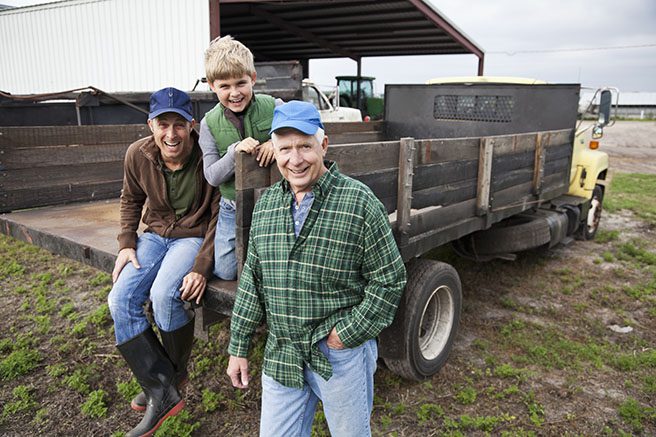While it’s becoming more common, splitting a multi-generational family farming enterprise into individual businesses is never an easy undertaking.
There are a number of reasons families may decide to divide the family farm. For some it’s about a desire to have greater control over the business direction of the farm, while for others it’s about more clearly defining succession plans for the family.
The high-level of emotion involved from the family members involved, along with the need to ensure a fair and equitable division of assets, has the potential to have a significant impact on family relationships. In many cases, it can be one of the most challenging issues a family farming enterprise will ever face.
Plan in advance
The first step in achieving a successful division is clear communication and ensuring all family members are informed and comfortable with the decisions being made.
It’s advisable to map out a succession or division strategy well in advance as this will ensure all family members have time to consider the transition, plan for the change and also feel comfortable with the decisions being made.
When the time comes to put in place the plan, the consultation undertaken in the planning stage will ensure a smoother transition for all parties involved.
Advisor, mediator and friend
One of the most important elements of any farm division is having someone trusted by the family who can provide an objective viewpoint free from the influence of family dynamics.
Ideally, this will be an experienced business advisor who can also assist in the financial aspects of the division of the business, facilitating the entire process, from family meetings through to ensuring all the legal paperwork is in place.
It’s preferable to use one advisor who is representing all parties rather than each family having individual representation, as this could increase conflict or disputes due to the perception that each family member is solely focused on their own interests.
One representative acting as a mediator and advisor also ensures there’s someone involved in the process who is looking at the bigger picture for the overall farming business, taking into account each family members’ private wealth management, taxation, superannuation and succession planning.
Focus on a good financial outcome
The key to successfully dividing a farm is to achieve a good financial outcome for family members. This will normally involve minimising the amount of tax payable, including the amount of capital gains tax.
Farm management deposits, stamp duty concessions, family farming business exemptions for moving land around and superannuation can all be used to achieve a good tax position.
Another important financial implication that you should consider is the review and restructuring of bank loans, including assets used to secure them.
Using an advisor or practice that has experience in property division, with a knowledge of tax, superannuation, business planning and estate planning is essential to achieve a good financial outcome for all parties.
Reviewing your estate plan
At the time of splitting up the farm, it’s also necessary to review your estate planning and update your Will to reflect the changes.
This step is extremely important from a succession planning perspective, ensuring your assets are accurately reflected and are distributed according to your wishes. This will minimise the risk of further family disputes or disruptions down the track.
In most cases, a family has worked together for generations and it would be disastrous for these relationships to breakdown due to a poorly managed asset split. Therefore throughout the process of splitting up a farm into individual businesses, your key focus needs to be on maintaining your strong family relationships.
































